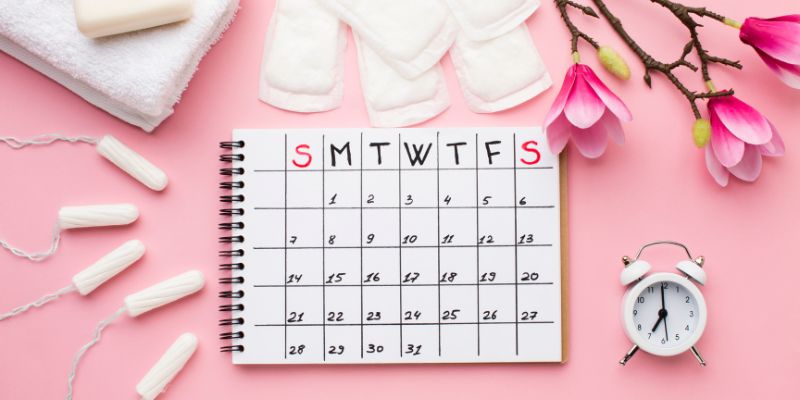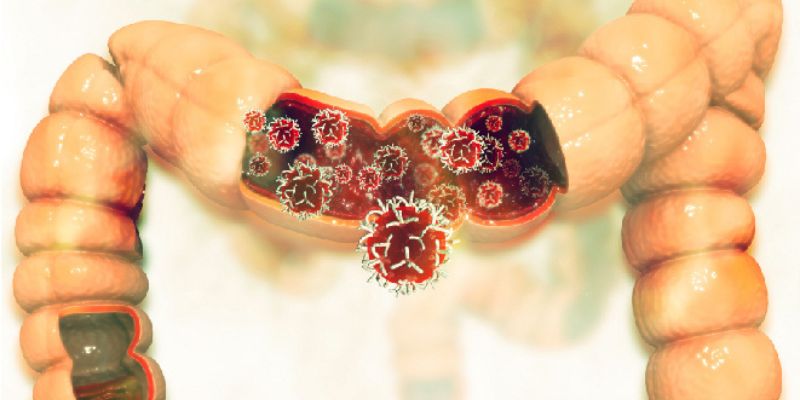Late or irregular periods are common, but this issue might be concerning if you face it continuously. Multiple reasons could justify your late or irregular periods. However, you have to take a deeper look at your regular life; then, you will find the exact reason for the problem.
The time had gone when it was taboo to talk about periods. Now, women are more vocal about their concerns which are appreciated. This blog covers the most talked about periods and why they are late.
Several possible reasons are mentioned. If you face any issues, your periods will be late from the expected date. So let’s find out why your periods are late.

What is the average time of the menstrual cycle?
Before jumping over the reasons for late or irregular periods, you must understand the menstrual cycle. The menstrual cycle is the group of phases from egg formation to the thickening of the womb lining in a female’s reproductive system.
If fertilization does not occur, the body releases hormones to reabsorb the egg and rupture the womb lining. The blood is released by womb rupturing, which the body experiences as periods. The average period of the menstrual cycle is about 28 days. Or you can say the body takes 28 days to form an egg; periods occur if matting does not occur.
According to some studies, the period might fall under 21 to 35 days. It has been recorded that women having periods under the mentioned interval are considered healthy. However, if your periods exceed the mentioned duration, it is concerning, and you must find the reason to resolve the issue.

Why is my period late? All the reasons you should know
One of the common reasons for late or irregular periods is the stress that every next teenager faces. However, there could be other reasons as well likewise;
- Chronic stress
- Polycystic ovary syndrome
- Weight loss or weight gain
- Use of birth control pills
- Early menopause
- Thyroid disease
- Hormonal problems
Chronic stress
Normal stress is very common nowadays and essential to carry on in life. But constant stress and depression lead to several problems, including physical and mental problems. Chronic stress destroys the normal working procedure of your mind and ultimately leads to disturbing the whole body’s mechanism.
The brain signals hormones to function effectively. How can it maintain the body functions if it is not working properly? Periods are directly affected by chronic stress. The rupturing of the lining requires a low level of estrogen hormone. If the mind is not signaling the hormone to shorten, your menstrual cycle will probably be disturbed.
To fight the stress regularly is all you need to get periods on time. For this sake, you can follow some relaxing techniques or consult a physician if the case is worst.
Polycystic ovary syndrome
Polycystic syndrome is the common reason for irregular or late periods. It is a hormonal problem in the female’s body. The body produces male androgen hormone, forming cysts in the female reproductory part and ultimately disturning the menstrual cycle.
It has been seen that cyst formation does not appear in every female having this syndrome. In some cases, cysts are not formed. Here are possible symptoms of polycystic ovary syndrome;
- abnormal facial hair growth
- male like baldness
- acne
Consider contacting your physician for early medical care if these symptoms are visible.
Weight loss or Weight gain
Fluctuation in weight is also the reason for late periods or missed periods. Weight gain can lead to irregularities because higher estrogen production levels cause menstrual cycle abnormalities.
If you are facing this issue, consider examining yourself with a doctor. He will also recommend some exercises to lose weight and a planned diet. Weight loss is also the reason for abnormalities in periods.
Excess weight loss and excessive exercise lead to this issue, or eating disorders might also be the reason. Getting prescriptions from the doctor would be the only solution.
Use of birth control pills
Taking birth control pills disturbs your menstrual cycle. It contains estrogen hormone, which stops egg formation. Ultimately, ovaries do not formulate the menstrual cycle, which causes irregularities or stops the period.
Birth control pills stop the thickening of women’s womb lining, which does not require rupture and ultimately stops the menstrual cycle. Taking the pills stops the birth and causes other problems like osteoporosis. Due to using pills, it will take months to regain normal menstrual cycle control. However, the constant use of pills destroys the cycle altogether.
Early menopause
If menopause occurs before age 40, it would be considered early menopause. Early menopause causes several hormonal and chronic problems. Irregularity in periods or late periods also occurs due to early menopause.
Several other problems, like cardiovascular diseases and jaundices, come from early menopause. In some women, osteoporosis is also seen due to premature menopause. Only hormonal therapy is the permanent solution to resolve the issue. However, visit the doctor for further procedures, and they might recommend a planned nutritionist diet or some medicines that will help you stop early menopause.
Thyroid disease
Hormonal fluctuations are one of the biggest factors to disturb the menstrual cycle. Several hormones affect your period cycle. From them, the thyroid hormone is an important factor in maintaining the menstrual cycle.
If the thyroid gland is disturbed, it is most likely to get a disrupted menstrual cycle. Lower or saturation of thyroid secretion results in irregularities in the period duration. And sometimes, it causes prolonged bleeding.
In this case, you might need to consult the doctor, and they will prescribe you some thyroid alternatives that will surely maintain the cycle as it was before.
Conclusion
Seeing the change in the menstrual cycle is common when you are in puberty because this is the age to experience the most hormonal fluctuations. However, you must consult the doctor if you continuously face late or irregular periods.
According to some reports, it is considered at ease if the duration is under 21 to 40 days. But if the interval exceeds 40, taking a check from the physician is highly recommended. Otherwise, you have to face the after results altogether.




